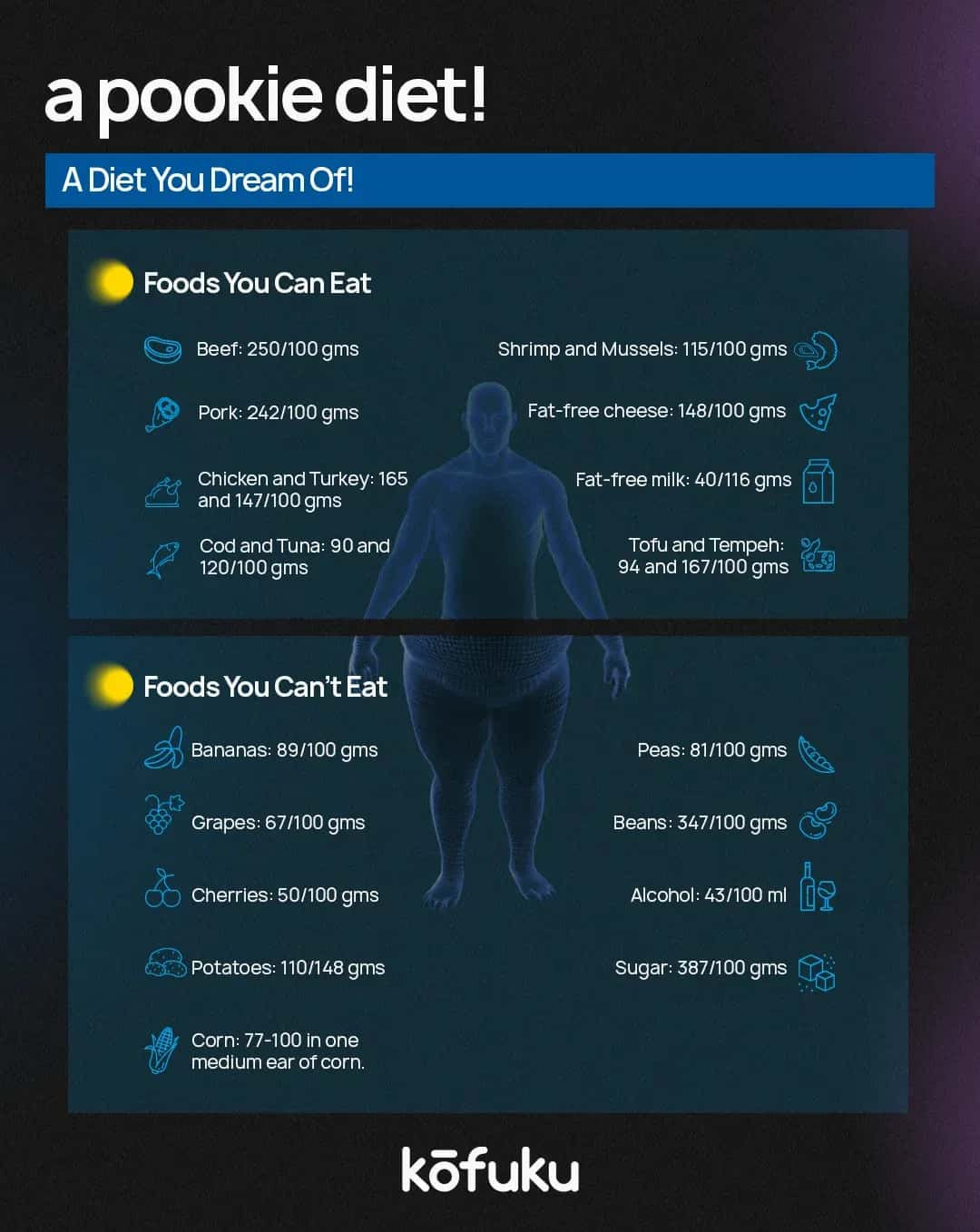What Is Dukan Diet and Who Is It For?

Introduction
Dieting is full of fads. From Keto, vegan, and raw meat diets, there are so many ways to try to eat healthy. But to be honest, with all these options, it can be quite confusing. And now, a new one has been taking the spotlight: the Dukan Diet.
Popularised by French doctor Dr. Pierre Dukan, this high-protein, low-carb diet has been followed by millions worldwide. But is it the right diet for you? Before diving in, let’s explore what the Dukan Diet is, how it works, its benefits, and whether it aligns with your lifestyle and health goals.
What is the Dukan Diet?
The Dukan Diet is a structured, high-protein, low-carb diet designed to promote weight loss while maintaining muscle mass. Perfect for the people of r/fitness. It gained fame all over the world when celebrities like Jennifer Lopez started endorsing it, and it has remained a popular choice for people looking for a quick transformation.
Unlike other diets that focus on counting calories, the Dukan Diet focuses more on the types of food you eat and follows a four-phase approach. Each phase has specific rules that guide dieters toward their ideal weight while preventing weight regain. Sounds a bit cult like? Let’s clear that up and jump into the specifics.
The Four Phases of the Dukan Diet
1. The Attack Phase (Rapid Weight Loss)
Duration: 2-7 days
Food Focus: Pure Protein (PP) – lean meats, fish, poultry, eggs, and non-fat dairy
Goal: A quick drop in weight due to ketosis (burning fat for energy)
During this phase, you will eat only protein-rich foods, which helps reduce appetite and jumpstart weight loss. The lack of carbs forces the body to burn stored fat for fuel, leading to rapid results. Additionally, oat bran (1.5 tablespoons daily) will be added to the diet to help in digestion and provide fiber.
2. The Cruise Phase (Gradual Weight Loss)
Duration: Until the target weight is reached (varies per person)
Food Focus: Protein + Vegetables
Goal: Lose about one pound per week
Here, you alternate between Pure Protein (PP) days and Protein + Vegetable (PV) days. Non-starchy vegetables such as spinach, kale, cucumbers, and bell peppers will be part of the diet. Carbs and fats remain restricted, ensuring continuous fat-burning while allowing for slower, more sustainable weight loss.
3. The Consolidation Phase (Preventing Rebound Weight Gain)
Duration: five days per pound lost (If you lost 20 pounds, this phase lasts 100 days)
Food Focus: Gradual reintroduction of fruits, whole grains, and dairy
Goal: Maintain weight loss and avoid rebound weight gain
This phase exists to reintroduce healthy carbs while stabilising weight. You are allowed some cheat meals such as two “celebration meals” per week, where you can eat whatever you like but in moderation. However, one Pure Protein (PP) day per week is still required.
4. The Stabilisation Phase (Long-Term Lifestyle)
Duration: Forever
Food Focus: Following basic consolidation rules but with more flexibility
Goal: Maintain weight effortlessly
At this stage, you can eat more freely but you should continue to prioritise protein, maintain one PP day per week, and eat oat bran daily to keep your weight in check. You should also be working out during this period.

Who is the Dukan Diet Best For?
Sure, the Dukan Diet is great, but it’s not ideal for everyone. The first group of people for whom it would be great are the ones who want to lose weight quickly. The attack phase can help you lose weight fast, that’s actually visible, which can be exceptionally motivating.
If you also prefer a structure and a time table given to you, this diet is great. If you’re also a mega carnivore, this diet is perfect for you as you’ll have quite a few pure protein days.
This diet is also great if fasting doesn’t work for you. High-protein meals are known for their appetite-suppressing effects, so it’s easier for you to stick to your plan.
Now let’s take a look at who would be better off following some other diet:
If you’re a vegetarian or vegan, we’d suggest skipping this one because of the amount of animal-based protein that you’ll have to have. Sure, you can go for plant-based protein if you want, as long as you can manage the repetition and eat vegetarian/vegan protein with fewer carbs.
If you have kidney issues, this diet won’t be great as high protein intake can strain the kidneys, worsening your issues. If you’re also someone who prefers flexibility, the rigidity of it can make it hard to follow.
If you’re an athlete or a very active person, don’t opt for this diet as eating less carbs will give you less energy, and carbs are a vital part of every athlete’s diet.
Potential Benefits of the Dukan Diet
-
Fast Weight Loss: Many experience a lot of weight loss in the first phase itself.
-
No Calorie Counting: Unlike many other diets, you focus on what to eat rather than how much.
-
Simple Rules to Follow: The structured approach removes guesswork.
-
Appetite Control: High-protein meals keep you feeling full longer.
-
Prevention of Weight Regain: The Consolidation and Stabilisation phases help maintain results.
Possible Risks and Downsides of the Dukan Diet
These are just potential risks, not guaranteed, but it’s still good to know before diving headfirst into the diet.
-
Nutrient Deficiency: Early phases restrict essential nutrients like fiber, healthy fats, and complex carbohydrates, which could lead to deficiencies.
-
Digestive Issues: The lack of fiber in the Attack Phase can cause constipation.
-
Keto Flu Symptoms: When you cut carbs too much and too fast, low energy, headaches, and irritability are common.
-
Difficult to Sustain: The strictness of the plan makes it difficult to follow for the long term.
-
Potential for Muscle Loss: Extreme calorie restriction can lead to muscle breakdown if protein intake is not balanced with activity levels.

Is the Dukan Diet Right for You?
To know if the Dukan Diet is right for you and aligns with your goals and lifestyle, ask yourself these questions:
Am I comfortable with a high-protein, low-carb diet?
Do I prefer a structured plan rather than flexible dieting?
Am I looking for quick weight loss with clear rules to follow?
Can I commit to a long-term lifestyle change, including a permanent protein-focused eating habit?
Can I go for a long time without eating masala dosa?
If you answered yes to most of these questions, the Dukan Diet might be a good fit for you. However, if you struggle with restrictive diets or generally prefer a balance, you may want to explore other diets like the Mediterranean Diet or intermittent fasting.
Conclusion
The Dukan Diet is great if you want to lose weight fast, but just like every diet, it’s not a magic potion and requires much hard work and discipline. If you’re considering this diet, consult your nutritionist or healthcare provider to ensure it aligns with your health needs.
At the end of the day, the best diets are the ones you can maintain for life, giving you a healthy life and satisfaction.
FAQs
What is the Dukan diet?
The Dukan Diet is a structured, high-protein, low-carb diet designed to promote weight loss while maintaining muscle mass.
I just got off the Keto diet. Can I do the Dukan diet?
It doesn’t matter what diet you got off. You can do the Dukan diet irrespective of what diet you have just followed.
How does the Dukan Diet work?
The Dukan Diet works by promoting rapid weight loss in the initial phase through a high-protein, low-carb approach. Protein-rich foods are believed to increase satiety and prevent muscle loss.
What are the potential benefits of the Dukan Diet?
The Dukan Diet can lead to rapid weight loss, particularly in the initial phases, due to its focus on protein and low carbohydrates. It may help reduce appetite and promote fat burning while preserving muscle mass.
Are there any risks or side effects associated with the Dukan Diet?
Some people may experience side effects like constipation, bad breath, fatigue, or nutrient deficiencies due to the strict limitations on food in the early phases. The high-protein, low-carb approach can also strain the kidneys over time, particularly for those with pre-existing kidney issues.






